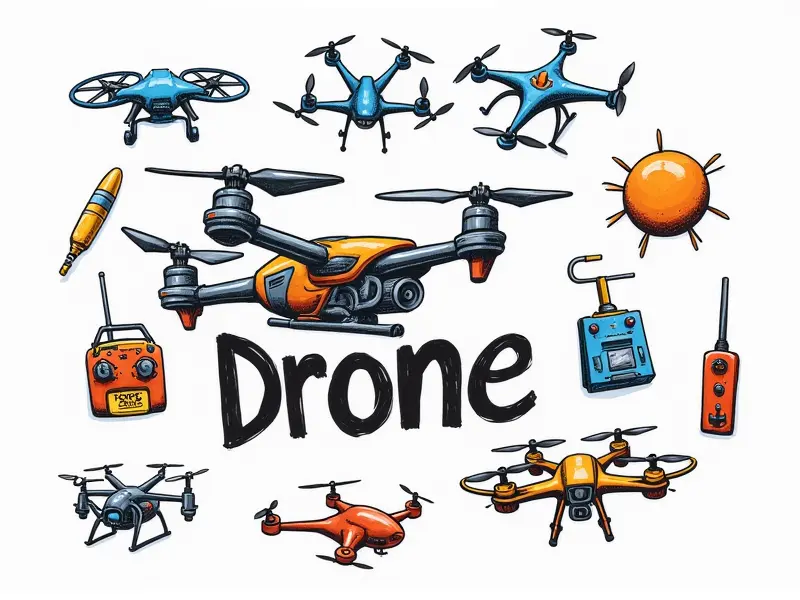Do RC helicopters need fuel?

RC Helicopter Power Options Explained
When it comes to remote-controlled (RC) helicopters, the choice of power source is a critical decision that affects performance and enjoyment. There are two primary options: electric motors powered by batteries and internal combustion engines fueled with nitro or glow fuel. Each has its unique advantages and disadvantages.
Why Some RC Helis Use Fuel
Fuel-powered RC helicopters, often referred to as "nitro" or "glow" helis, use a small engine that runs on a mixture of methanol and nitromethane. This type of power source offers several benefits:
- Power Output: Fuel engines provide high torque and horsepower, making them ideal for larger RC helicopters.
- Flying Time: A single tank of fuel can last up to 10-20 minutes, which is significantly longer than battery-powered models.
- No Load Limitations: Fuel engines are not affected by the weight of batteries, allowing for more efficient use of payload capacity.
The Pros and Cons of Fuel RC Helis
Fuel-powered RC helicopters come with their own set of pros and cons that pilots should consider before making a purchase:
Pros
- Extended Flight Time: With fuel tanks, you can enjoy longer flights without the need for frequent recharging.
- High Performance: Fuel engines deliver superior power and torque, making them suitable for advanced maneuvers and aerobatics.
Cons
- Maintenance Requirements: Fuel-powered RC helicopters require regular maintenance to keep the engine running smoothly.
- Noise Pollution: The combustion process produces noise, which can be a drawback in residential areas or near sensitive environments.
Can RC Helicopters Run on Batteries Only?
Battery-powered RC helicopters use electric motors and rely solely on battery packs for energy. These models are becoming increasingly popular due to their ease of use, lower maintenance requirements, and environmental benefits:
- No Emissions: Electric RC helis produce zero emissions, making them a cleaner alternative.
- Silent Operation: They operate silently, which is ideal for indoor flying or in quiet neighborhoods.
Choosing Between Electric and Fuel RC Helis
The decision between an electric and fuel-powered RC helicopter depends on your specific needs and preferences. Consider the following factors when making your choice:
- Experience Level: Beginners may find electric models easier to handle due to their simplicity.
- Budget: Electric helis are generally less expensive upfront, although they might require more batteries over time.
Fuel Considerations for RC Helis
If you opt for a fuel-powered RC helicopter, there are several important considerations to keep in mind:
- Storage and Handling: Fuel tanks must be stored safely and handled with care to prevent leaks.
- Mixing Ratio: Properly mixing the correct ratio of methanol to nitromethane is crucial for optimal engine performance.
RC Helicopter: Fuel vs Battery
The choice between fuel and battery power ultimately comes down to your desired flying experience. Here’s a quick comparison:
| Fuel-Powered RC Helis | Battery-Powered RC Helis | |
|---|---|---|
| Power Output | High torque and horsepower | Limited by battery capacity |
| Flying Time | Up to 10-20 minutes per tank | Varies based on battery size and type |
| Maintenance | Regular engine maintenance required | Limited, mainly battery replacement |
Are Fuels Needed for RC Helis?
Fuels are indeed necessary for fuel-powered RC helicopters. These fuels provide the energy needed to power the internal combustion engines and deliver high-performance capabilities.
Do RC Heli Pilots Use Fuel?
Many experienced RC helicopter pilots opt for fuel-powered models due to their superior performance characteristics, especially when flying larger or more advanced helis that require significant power output.
RC Helicopters: Fuel Alternatives?
While fuel is the primary choice for high-performance RC helicopters, there are alternative energy sources such as electric motors and hybrid systems that offer a balance between performance and convenience:
- Battery-Powered Models: Ideal for beginners and indoor flying.
- Hybrid Systems: Combining the benefits of both fuel and battery power, offering extended flight times with high performance.
What Fuels RC Helicopters?
Fuel-powered RC helicopters typically use a mixture of methanol and nitromethane. This blend is commonly referred to as "glow fuel" or simply "fuel," providing the necessary energy for the engine to operate efficiently.
Conclusion
The decision whether an RC helicopter needs fuel depends on your specific requirements, such as flight duration, performance demands, and maintenance preferences. Both electric and fuel-powered options have their unique advantages, making them suitable for different types of pilots and flying scenarios. By understanding the pros and cons of each power source, you can make an informed choice that enhances your RC helicopter experience.

